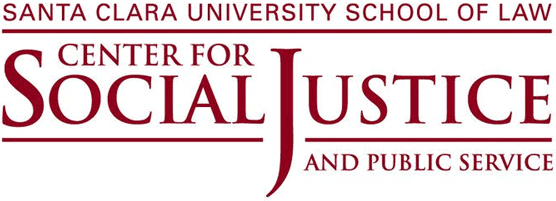Social Justice Workshop
Spring 2014
Fall 2013
Spring 2013
Fall 2012
Spring 2012
Fall 2011
Spring 2011
Fall 2010 Social Justice Workshop Flyer (PDF)
Spring 2010 Social Justice Workshop Flyer (PDF)
Fall 2009 Social Justice Workshop Flyer (PDF)
Fall 2008 Social Justice Workshop Flyer (PDF)
Fall 2007 Social Justice Workshop (Law and Labor in the Global Economy) Flyer (PDF)
Fall 2006 Social Justice Workshop (Race, Economics, and Education) Flyer (PDF)
Fall 2005 Social Justice Workshop (Health Policy and the Law) Flyer (PDF)
Fall 2004 Social Justice Workshop (Transitional Justice) Flyer (PDF)
Fall 2003 (Biotechnology and Social Justice) and 2002 (Post 9/11 Challenges to Social Justice and Constitutional Rights) Workshops (PDF)
“Law and Labor in the Fields” – taught by Professor Stephen F. Diamond
California agriculture is big business. It generates more than $43 billion in revenue each year. The industry employs approximately 750,000 workers, more than one third of all farm workers in the country.
California is unique in American farm labor, not just because of its economic dominance, but also because the Agricultural Labor Relations Act (ALRA) provides protection for farmworkers’ right to organize unions and engage in collective bargaining. Despite the passage of this law in 1975, however, only a tiny number of farm workers are organized today. Yet, the industry has grown dramatically in size and profitability over the last 40 years.
This seminar will examine the relationship between legal institutions and farm labor, in California and elsewhere, both in the U.S. and internationally. Labor organizing, immigration, technology and other issues will be covered.
The seminar is dedicated to the memory of both Cesar Chavez, the founder and leader of the United Farm Workers union, who died 20 years ago and our own Professor Herman Levy, who died a decade ago, and was a key architect of the ALRA. Leading academics from law and other disciplines as well as labor activists will present their views to the seminar.
January 30, 2014
 Frank Bardacke (Author, awaiting final confirmation)
Frank Bardacke (Author, awaiting final confirmation)
“The UFW Experience: Union or Movement?”
Frank Bardacke teaches American History at California State University at Monterey Bay. He moved to California’s Central Coast in 1970, worked for six seasons in the Salinas Valley fields, and taught at Watsonville Adult School for 25 years. In addition to Trampling Out the Vintage, he is the author of Good Liberals and Great Blue Herons: Land, Labor, and Politics in the Pajaro Valley.
February 20, 2014
 David Zilberman (University of California, Berkeley)
David Zilberman (University of California, Berkeley)
Science and the Farm: Impact of GM Food and Pesticides
David Zilberman has been a professor in the Agricultural and Resource Economics Department at U.C. Berkeley since 1979. He is a fellow of the American Agricultural Economics Association and the Association of Environmental and Resource Economists. His research interests are in agricultural and nutritional policy, economics of technological change, economics of natural resources and micro-economic theory.
February 27, 2014
 Ruben Garcia (UNLV Law)
Ruben Garcia (UNLV Law)
“Marginal Workers: How Legal Fault Lines Divided Workers and Leave Them without Protection”
Ruben J. Garcia is Professor of Law at the University of Nevada, Las Vegas, William S. Boyd School of Law. Prior to joining the UNLV faculty in 2011, he was Professor of Law and Director of the Labor and Employment Law Program at California Western School of Law in San Diego, where he taught for eight years. He also has held academic appointments at the University of California, Davis School of Law, the University of Wisconsin Law School, and at the University of California, San Diego. Before beginning his teaching career in 2000, Garcia worked as an attorney for public and private sector labor unions and employees in the Los Angeles area. His scholarship has appeared in a number of leading law reviews, including the Hastings Law Journal, the University of Chicago Legal Forum and the Florida State University Law Review, among others. His first book, published by New York University Press in 2012, is entitled Marginal Workers: How Legal Fault Lines Divide Workers and Leave Them Without Protection. He currently serves on the boards of the ACLU of Nevada and the Society of American Law Teachers (SALT).
March 13, 2014
 Maria Ontiveros (University of San Francisco)
Maria Ontiveros (University of San Francisco)
“Noncitizen Immigrant Labor and the 13th Amendment”
Professor Maria Linda Ontiveros focuses her scholarly work on employment law with an emphasis on immigrant workers’ rights. She publishes and presents regularly on a variety of related topics, including the history of immigrant workers, workplace harassment of women of color, organized labor, immigrants and the Thirteenth Amendment, and access to education for children of undocumented workers. Ontiveros is co-author of Employment Discrimination Law: Cases and Materials on Equality in the Workplace, and the author of numerous articles and book chapters.
March 27, 2014
 David Smith (University of Kansas, Department of Sociology)
David Smith (University of Kansas, Department of Sociology)
“The Dispossessed: Rural Proletarians, Forced Laborers, and Former Farmers, from California to Rwanda”
David Smith is a specialist in sociological theory who studies inequality and the psychology of inequality. He holds a PhD in sociology from the University of Wisconsin in Madison and an AB in economics from the University of California in Berkeley. Smith’s writings include publications on classical and critical social theory, anti-Semitism, authority, authoritarianism, charisma, genocide, the Rwandan genocide, capitalism, and labor. Recent publications include “Charisma and Critique” (Current Perspectives in Social Theory, 2011), “Sweatshops” (Blackwell Concise Encyclopedia of Sociology Online, 2011) and Mapping the Great Recession” (New Political Science, 2011).
Previous Social Justice Workshops
Fall 2013 Social Justice Workshop: Wrongful Convictions: The Heart of the Matter – taught by Professor Kathleen Ridolfi
This fall Social Justice Workshop features guest lectures by nationally recognized experts on the leading causes of wrongful conviction. Students will study these causes, including mistaken eyewitness identification, false confessions, unreliable jailhouse informant testimony, stakeholder tunnel vision, unsound so-called forensic sciences, and prosecutorial error or misconduct, from legal, ethical, scientific, and psychological perspectives. The course will also introduce students to the methodology used to investigate claims of actual innocence and the legal hurdles to achieving exoneration within the criminal justice framework. The class will also address policy considerations such as legislative and non-legislative reforms and the power of legal/social science research in advancing data-driven law reform.
August 22, 2013
 Brandon Garrett (University of Virginia School of Law)
Brandon Garrett (University of Virginia School of Law)
“Judging Innocence” – *Via Skype*
August 29, 2013
 Jennifer Dysart (John Jay College of Criminal Justice in New York City)
Jennifer Dysart (John Jay College of Criminal Justice in New York City)
“The Science of Eyewitness Identification”
Dr. Jennifer Dysart is a tenured Associate Professor of Psychology at John Jay College of Criminal Justice in New York City. She holds a Ph.D. in Social Psychology from Queen’s University and has been conducting research on eyewitness identification for 15 years. Her research examines how police identification procedures can lead to the mistaken identification of innocent people and how the implementation of safeguards may reduce these errors. Dr. Dysart has published in peer-reviewed psychology journals and has written several book chapters on eyewitness identification accuracy. She is also co-author of the book “Eyewitness Testimony: Civil and Criminal”, 4th & 5th Editions, with Dr. Elizabeth Loftus and James Doyle (published by LexisNexis). Over the past eight years, Dr. Dysart has spoken about the fallibility of eyewitness identification at over 85 judicial education conferences, public defender programs, police programs, investigator conferences and universities, and has more recently testified before legislative committees concerning eyewitness identification procedures. Dr. Dysart also testifies as an expert witness on eyewitness memory in both state and federal court.
September 5, 2013
 Keith A. Findley (University of Wisconsin Law School)
Keith A. Findley (University of Wisconsin Law School)
“The Multiple Dimension of Tunnel Vision”
Keith A. Findley, a 1985 graduate of the Yale Law School, and a 1981 graduate of Indiana University, is an assistant professor at the University of Wisconsin Law School, where he is also co-founder and co-director of the Wisconsin Innocence Project. He is currently the president of the Innocence Network, an affiliation of more than 60 innocence projects in the United States, Canada, United Kingdom, Ireland, Australia, New Zealand, and the Netherlands. He is the author of numerous articles on wrongful convictions, and has represented more than a dozen innocent individuals who were exonerated by DNA and other evidence after years of wrongful imprisonment. He previously served as an appellate and trial level Assistant State Public Defender in Madison, Wisconsin. He has litigated hundreds of appeals at all levels of state and federal courts.
October 1, 2013
 Steve Drizin (Northwestern Law School)
Steve Drizin (Northwestern Law School)
“False Confession” event will be on a Tuesday and all the other events will be on Thursdays.
Steven Drizin is a Clinical Professor at Northwestern Law School, the Assistant Director of the Bluhm Legal Clinic, and the Legal Director of the Clinic’s renowned Center on Wrongful Convictions (CWC). At the Clinic, Drizin supervises law students in delinquency and criminal appeals and in wrongful conviction cases. At the Center, his research interests involve the study of false confessions and his policy work focuses on supporting efforts around the country to require law enforcement agencies to electronically record custodial interrogations. In 2008, he co-founded the Center on Wrongful Convictions of Youth (CWCY) where he and his colleagues represent clients who were only juveniles when arrested and use these cases to advocate for reforms in police and investigative practices aimed at preventing future wrongful convictions of youth. Read full bio…
October 17–18, 2013
 Nina Morrison (Innocence Project)
Nina Morrison (Innocence Project)
“Litigating Innocence: Tales from the Front Lines of the DNA Revolution”
Nina Morrison is a Senior Staff Attorney at the Innocence Project, Inc., in New York, NY. In that capacity, she primarily litigates claims for access to postconviction DNA evidence from around the nation, under both federal civil rights laws and state DNA testing statutes, as well as other claims for post-conviction relief. In her eleven years at the Innocence Project, Nina has been lead counsel for and/or assisted in the representation of twenty-one men who have been freed from prison or death row based on new DNA evidence.
November 12, 2013
Cliff Gardner (Law Offices of Cliff Gardner)
“Ineffective Assistance of Counsel”
Spring 2013 Social Justice Workshop: Public Service and Social Justice Law Practice – taught by Professor Margaret Russell
This class provides both an overview of the problems faced by indigent and otherwise disadvantaged communities and an introduction to lawyering skills needed to assist these clients. The course focused on social justice lawyering theory and practice through a range of perspectives and approaches, including litigation, legislation, policy making, media education, community organizing, and coalition building. Students will have an opportunity to meet and learn from leading practitioners and scholars in key social justice areas, including immigrants’ rights, farmworkers’ rights, disability law, LGBT law, elder law, education law, civil rights, and civil liberties.
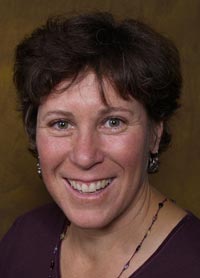 Dori Rose Inda (Watsonville Law Center)
Dori Rose Inda (Watsonville Law Center)
“Turning Vision into Mission as an Accidental Leader”
Dori Rose Inda is the founder and executive director of the Watsonville Law Center (WLC). She earned a bachelor’s degree in social science at the University of California, Berkeley, in 1988 and earned a J.D. at Santa Clara University School of Law in 2000. While a law student, Inda assisted on a case in which many of the victims were from the Watsonville area. These clients were unable to obtain legal representation locally and this brought to light the critical gap in legal services in the Watsonville area. She then dedicated herself to establishing WLC in Watsonville. After graduation, Inda worked as a staff attorney for California Rural Legal Assistance and in 2002 founded the Watsonville Law Center. Since that time, with WLC’s team of staff, board, and partners, she developed the five projects that make up WLC’s services to the community: Economic Justice Partnership, Agricultural Workers’ Access to Health Project, Barriers to Employment, Consumer Protection, and Language Access to the Court.
 Susan Mizner (American Civil Liberties Union Disability Rights Project)
Susan Mizner (American Civil Liberties Union Disability Rights Project)
“A Valentine to the ADA: Why I Love Disability Rights Law and You Should, Too”
Susan Mizner is the director of the Disability Rights Project of the American Civil Liberties Union. She served as director of the San Francisco Mayor’s Office on Disability from 2003 to 2011, and as deputy director for programmatic access from 2000 to 2003. Susan is a graduate of Yale University and Stanford Law School. A member of the disability community since the 1980s, she attended law school primarily from a cot. She has devoted her professional life to promoting equality of access for people with disabilities.
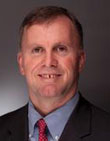 Michael Adams (SAGE USA, Services and Advocacy for GLBT Elders)
Michael Adams (SAGE USA, Services and Advocacy for GLBT Elders)
“Aging through an LGBT Lens: A Social Justice Perspective”
Michael Adams is the executive director of SAGE USA, Services and Advocacy for GLBT Elders. SAGE is the oldest and largest organization in the country dedicated to transforming the LGBT aging experience. In 2009, the U.S. Department of Health and Human Services selected SAGE to establish and run the country’s first and only National Resource Center on LGBT Aging. Before
joining SAGE, Michael was the director of education and public affairs for Lambda Legal, deputy legal director at Lambda Legal, associate director of the ACLU’s Lesbian and Gay Rights Project, and an attorney in private practice in San Francisco. He is a graduate of Harvard College and Stanford Law School.
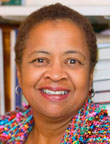 Margaret A. Burnham (Northeastern University School of Law)
Margaret A. Burnham (Northeastern University School of Law)
“Civil Rights and Restorative Justice: Why the Past Still Matters”
Margaret A. Burnham joined the Northeastern University School of Law in 2002. Her areas of expertise are civil and human rights, comparative constitutional law, and international criminal law. She is the founder and director of the Center for Civil Rights and Restorative Justice, through which she trains law students to investigate and prepare cases from the 1960s civil rights era. Before joining the Northeastern faculty, she was a partner in a Boston civil rights firm with an international human rights practice, and a staff attorney at the NAACP Legal Defense Fund. She was the first African-American woman to serve in the Massachusetts judiciary. A former fellow of the Bunting Institute at Radcliffe College and Harvard University’s W.E.B. DuBois Institute for Afro-American Studies, Professor Burnham has written extensively on contemporary legal and political issues.
 Anthony D. Romero (National American Civil Liberties Union)
Anthony D. Romero (National American Civil Liberties Union)
“Leading the Charge: Protecting and Expanding Constitutional Rights in the Face of Popular Opposition”*
Anthony D. Romero is the executive director of the American Civil Liberties Union. He took the helm of the organization just four days before the September 11, 2001 attacks. Shortly afterward, the ACLU launched its national Keep America Safe and Free campaign to protect basic freedoms during a time of crisis, achieving court victories on the Patriot Act, uncovering thousands of pages of documents detailing the torture and abuse of detainees in U.S. custody, and filing the first successful legal challenge to the Bush administration’s illegal NSA spying program. Romero also led the ACLU in establishing the John Adams Project, a joint effort with the National Association of Criminal Defense Lawyers to assist the under-resourced military defense lawyers in the Guantánamo military commissions. Romero is the ACLU’s sixth executive director, and the first Latino and first openly gay director in the organization’s history. With National Public Radio’s correspondent Dina Temple Raston, Romero is the co-author of In Defense of Our America: The Fight for Civil Liberties in the Age of Terror (2007). Born in New York City to parents who hailed from Puerto Rico, Romero was the first in his family to graduate from high school. He is a graduate of Princeton University and Stanford Law School.
Fall 2012 Workshop: Climate Change Law – led by Professor Ken Manaster and Professor Tseming Yang
This course introduced students to the legal tools and policy measures used to respond to the world’s most pressing and prominent international environmental problem–global climate change. In the process, we explored evaluative frameworks and the latest developments in the U.S. and internationally, including the status of the international climate negotiations and new treaty commitments, the pervasive social justice dialogue among governments and with civil society and the business sector, and the implications for the people of the developing and developed world.
The course emphasized the practical aspects of implementing measures, including new and pending federal and state regulations, the operation of market mechanisms such as carbon markets, and the increasing need to focus on climate adaptation. We heard guest-lectures from national experts and leading figures in the field.
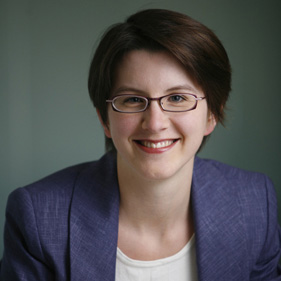 Emilie Mazzacurati, Head of Carbon Analysis, Global Market at Thomson Reuters (Point Carbon)
Emilie Mazzacurati, Head of Carbon Analysis, Global Market at Thomson Reuters (Point Carbon)
“Carbon Markets and Finance”
Emilie Mazzacurati heads Point Carbon Thomson Reuters’s North American Research team where she focuses on climate policy and market analysis. She has published extensively and is a regular speaker at carbon conferences on federal climate legislation, regional programs and the interaction of carbon with other commodity markets. She previously worked as a policy advisor for the Deputy Mayor of Paris for the environment and as an analyst at the United Nations Environment Program in Asia-Pacific. Ms. Mazzacurati holds a Master of Public Policy from the University of California, Berkeley and a Master of Political Science from the Institute of Political Studies of Paris, France.
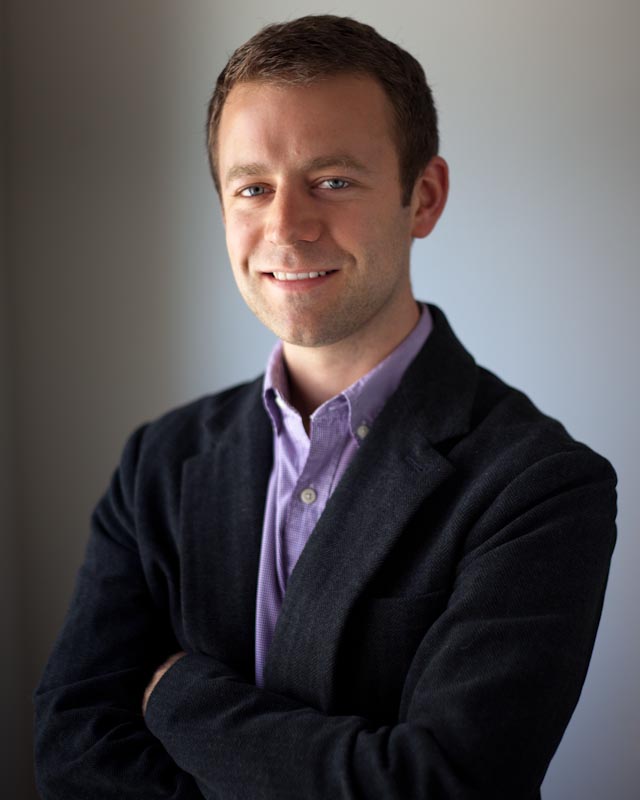 Alex Jackson, Natural Resources Defense Council, San Francisco
Alex Jackson, Natural Resources Defense Council, San Francisco
“California Climate Regulation”
Alex Jackson is an attorney in NRDC’s Energy and Transportation Program working on California climate law and policy. In that capacity, he focuses on implementing and defending the suite of clean energy programs developed under California’s Global Warming Solutions Act of 2006 (AB 32) and on pursuing statewide strategies to improve energy efficiency and promote carbon mitigation policies before the California Public Utilities Commission and California Air Resources Board. Prior to joining NRDC, Mr. Jackson earned his JD from UC Berkeley School of Law and a BA in Environmental Policy, History, and Government from Cornell University.
Peter Wyckoff, former EPA official and current partner in the Washington, D.C. office of Pillsbury Winthrop Shaw Pittman LLP
“Federal Climate Regulation”
Peter Wycoff is a partner at Pillsbury Winthrop Shaw Pittman LLP. He has practiced environmental law for 35 years, concentrating primarily on international treaties related to air pollution, the federal Clean Air Act, and the federal and state regulations it has spawned. He began his environmental career at U.S. EPA in 1977, where he helped shape many of EPA’s major air pollution initiatives during the 1980s – for instance, EPA’s PSD permitting program and its original Emissions Trading Policy. In private practice since 1989, Mr. Wyckoff has advised and represented trade associations and individual corporations on air pollution matters before the UN, U.S. EPA, state agencies, and the federal courts. He is co-author of the chapter on new source permitting in ELI’s treatise Law of Environmental Protection (Spring 2012 Edition) and of the stratospheric ozone chapter in ABA’s Clean Air Act Handbook (3rd Edition). A cum laude graduate of Syracuse University College of Law in 1975, Mr. Wyckoff was Editor-in-Chief of the Syracuse Law Review.
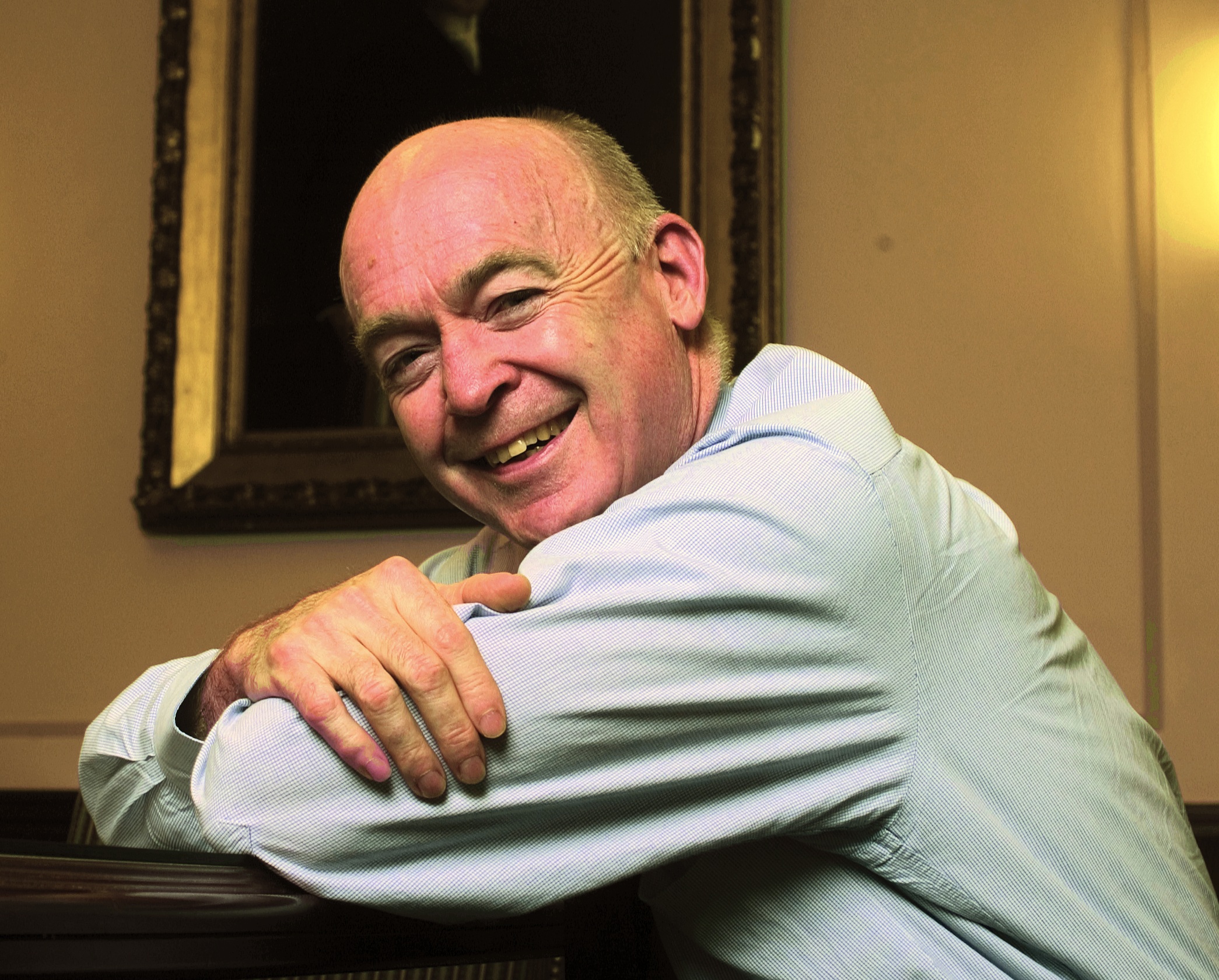 John Cruden, President of the Environmental Law Institute in Washington, D.C.
John Cruden, President of the Environmental Law Institute in Washington, D.C.
“Federal Climate Regulation”
John C. Cruden is the President, Environmental Law Institute, a nationally recognized non-profit association that provides research, education, and publications in the area of environmental law and policy. He was raised in Michigan and is a graduate of the United States Military Academy, University of Santa Clara (summa cum laude, 2006 Alumni Special Achievement Award), and University of Virginia (honors). He is a member of the bars of the District of Columbia and California, a number of federal courts, and the U.S. Supreme Court.
Before coming to ELI, Cruden was for over two decades the career Deputy Assistant Attorney General, Environment and Natural Resources Division, U.S. Department of Justice. In that capacity he supervised all federal civil environmental enforcement and litigation involving agencies of the United States. He has personally litigated and led settlement negotiations in numerous environmental cases, many with reported decisions. Prior to becoming Deputy Assistant Attorney General, he was Chief, Environmental Enforcement Section.Cruden has received the Presidential Rank Award from three different Presidents. He has also received the Federal Bar Association’s Younger Award and the American Bar Association’s Mary C. Lawton Award for Outstanding Government Service. His military awards include the Bronze Star, Legion of Merit, Defense Meritorious Service Medal, Air Medal with Oak Leaf Clusters and the Vietnamese Cross of Gallantry with Silver Star.
Spring 2012 Workshop: The Death Penalty: Race, Poverty, and Disadvantage – led by Professor Ellen Kreitzberg
This course covered the history of the death penalty and its implementation today. We examined how issues of poverty and race impact capital cases. We also looked at the litigation surrounding the use of lethal injection as a method of execution. Topics included the right to counsel for people who cannot afford lawyers, racial discrimination, prosecutorial discretion, judicial independence, and mental health issues.
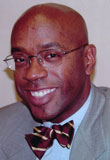 Anthony Ricco, Law Office of Anthony L. Ricco
Anthony Ricco, Law Office of Anthony L. Ricco
“The Practice of Law: Saving Lives and Fighting Injustice”
Anthony L. Ricco specializes in state and federal criminal defense litigation and especially capital cases. In 2008, he was named Attorney of the Year by the Metropolitan Black Bar Association and the United States Court of Appeals for the Second Circuit, and the American Inns of Court awarded him its Professionalism Award. In October 2009, he was appointed as a national resource counsel to the Federal Death Penalty Resource Counsel Project to provide guidance to capital lawyers around the country. In 2010, he was accepted as a Fellow in the American College of Trial Lawyers. He has handled numerous high-profile and controversial cases, including, inter alia, the World Trade Center bombing conspiracy case; the U.S. Embassy Bombing case; and counsel for Detective Gescard Isnora in the so-called Sean Bell case.
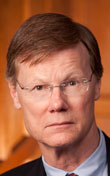 Steven B. Bright, Southern Center for Human Rights
Steven B. Bright, Southern Center for Human Rights
“Race, Poverty, Innocence and Death; Injustice In America”
Stephen B. Bright is president and senior counsel of the Southern Center for Human Rights in Atlanta and a visiting lecturer at Yale Law School. He has also been a legal services attorney and public defender. Subjects of his litigation, teaching, and writings include legal representation of poor people accused of crimes, capital punishment, racial discrimination in the criminal justice system, conditions and practices in prisons and jails, and judicial independence. He argued Snyder v. Louisiana, 552 U.S. 472 (2008), and Amadeo v. Zant, 486 U.S. 214 (1988), both reversed because of racial discrimination in jury selection. He received the American Bar Association’s Thurgood Marshall Award in 1998.
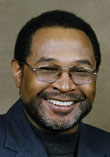 William “Billy” Neal Moore
William “Billy” Neal Moore
“Guilty, But Illegally Convicted; the Foolishness of the Death Penalty”
William “Billy” Neal Moore was on Georgia’s death row for 16.5 years for the crime of murder and armed robbery. On November 8, 1991, Billy was released on parole. His life was spared when he was within seven hours of execution in large part based upon the support of the victim’s family. While on death row Billy earned a bachelor’s degree in theology and ministered to his fellow inmates. Billy is the author of the book I Shall Not Die, But Live, a gripping account of coming within hours of execution.
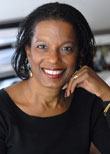 Angela J. Davis (American University Washington College of Law)
Angela J. Davis (American University Washington College of Law)
“Prosecutorial Discretion: The Power to Choose Death”
Angela J. Davis is a professor of law at the American University Washington College of Law, where she teaches in the area of criminal law. She is the author of numerous books and articles on racism in the criminal justice arena, prosecutorial discretion and criminal justice, including Arbitrary Justice: The Power of the American Prosecutor (Oxford University Press, 2007), and co-editor of Trial Stories (with Professor Michael E. Tigar, Foundation Press, 2007). In 2002, Davis received the American University Faculty Award for Outstanding Teaching, and in 2009 the American University Faculty Award for Outstanding Scholarship. She was awarded a Soros Senior Justice Fellowship in 2004.
Davis is a graduate of Howard University and Harvard Law School. She serves on the board of trustees of the Southern Center for Human Rights, the Sentencing Project, and the Peter M. Cicchino Social Justice Foundation. From 1991 to 1994, she was the director of the Public Defender Service for the District of Columbia. Davis is a former law clerk of the Honorable Theodore R. Newman of the D.C. Court of Appeals.
Fall 2011 Workshop: Suing Governments: Federal, State, and Foreign – taught by Professor David Sloss
Much of the civil litigation in U.S. courts today involves suits by private plaintiffs against government agencies and/or officers. Lawsuits of this type are an essential mechanism for holding governments accountable and promoting the rule of law. Plaintiffs who sue government defendants face unique obstacles that do not arise in private litigation. This course explored various procedural mechanisms for overcoming those obstacles. The course was divided into three parts: suits against state and local government defendants; suits against federal government defendants; and suits against foreign government defendants.
The section on state and local government addressed: section 1983 litigation, habeas corpus litigation, the Ex parte Young doctrine, state sovereign immunity, and officer immunity. The section on federal government addressed: the Administrative Procedures Act, the Federal Tort Claims Act, federal habeas corpus, Bivens actions, federal sovereign immunity, and the state secrets doctrine. Both sections (state and federal) considered claims against government defendants based on constitutional, statutory and treaty law. The final section of the course addressed claims against foreign governments and officers, with a focus on claims under the Alien Tort Statute and the Foreign Sovereign Immunities Act.
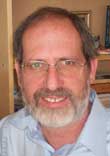 Don Specter, Prison Law Office
Don Specter, Prison Law Office
“Litigating Prisoners’ Rights”
Donald Specter has been director of the Prison Law Office, based in San Quentin, California, since 1984. He manages and directs the legal and administrative operations of a nonprofit 11-attorney office providing free legal services to California state prisoners. Specter has been lead counsel in numerous successful institutional reform litigation, with assistance from major Bay Area law firms, through federal and state class actions challenging various conditions of confinement system-wide at all 32 state prisons, and at individual prisons, including Pelican Bay, San Quentin, and Vacaville.
Specter also has an extensive appellate practice, including one argument before the U.S. Supreme Court, six arguments before the California Supreme Court (two death penalty cases), numerous prison conditions cases, and criminal appeals before state and federal appellate courts. He has been chair of the State Bar’s Commission on Corrections, has spoken to local and national audiences of attorneys and correctional officials, and is frequently interviewed by the local and national media. He earned his B.A. in Economics from New College in Florida in 1974 and his J.D. from the University of San Francisco School of Law in 1978.
Cliff Gardner, Law Offices of Cliff Gardner
“Litigating Post-Conviction Habeas Claims”
Cliff Gardner has had a post-conviction practice for the last 30 years, specializing in criminal appellate and habeas corpus representation in state and federal court. He has argued cases at all levels of the state and federal court system, including 15 cases in the California Supreme Court and three cases in the United States Supreme Court. He has successfully represented death row clients in Idaho, Montana, and California, and lectured and written about appellate and habeas representation generally, as well as the Antiterrorism and Effective Death Penalty Act passed by Congress in 1996. In 2000, he co-authored a statewide initiative—the Substance Abuse and Crime Prevention Act of 2000 (more commonly known as Proposition 36)—which was enacted by 61 percent of the electorate on November 7, 2000. In 2005, he wrote Santa Cruz City Ordinance No. 2005-28 creating a compassionate use program to ensure that critically ill citizens of Santa Cruz County had access to medical marijuana.
Gardner graduated from UCLA School of Law in 1980 (Order of the Coif). He received his B.A. in Anthropology and Archeology from SUNY–Binghamton in 1977.
Steven Watt, American Civil Liberties Union, Human Rights Program
“Extraordinary Rendition”
Steven M. Watt is a senior staff attorney with the Human Rights Program, specializing in litigation before federal courts and international tribunals. Watt is counsel in El Masri v. Tenet and Mohamed v. Jeppesen, challenges to the CIA’s extraordinary rendition program; Ali v. Rumsfeld, a suit challenging U.S. interrogation and detention practices in Afghanistan and Iraq; Sabbithi v. Kuwait, a case on behalf of three Indian women trafficked into the U.S. and enslaved by their diplomat employers; and Gonzales v. United States, a case before the Inter-American Commission of Human Rights on behalf of a victim of domestic violence.
Prior to joining the ACLU, Watt was a Human Rights Fellow at the Center for Constitutional Rights, where he focused on post-9/11 litigation, including Rasul v. Bush, a case involving the detention of Guantánamo Bay detainees; Arar v. Ashcroft, the first legal challenge to extraordinary rendition; and Turkmen v. Ashcroft, a case involving the detention of Arab, South Asian, and Muslim men rounded up after the September 11, 2001, attacks.
Originally from Scotland, Watt holds a law degree from the University of Aberdeen, a Diploma in Legal Practice from the University of Edinburgh, and an LL.M. in International Human Rights from the University of Notre Dame.
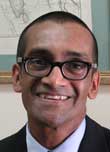 Shayana Kadidal, Center for Constitutional Rights
Shayana Kadidal, Center for Constitutional Rights
“Guantánamo Litigation”
Shayana Kadidal is senior managing attorney of the Guantánamo Global Justice Initiative at the Center for Constitutional Rights in New York City. He is a graduate of the Yale Law School and a former law clerk to Judge Kermit Lipez of the U.S. Court of Appeals for the First Circuit. In his eight years at the Center for Constitutional Rights, he has worked on a number of significant cases in the wake of 9/11, including CCR’s challenges to the detention of prisoners at Guantánamo Bay (among them torture victim Mohammed al Qahtani and former CIA ghost detainee Majid Khan), which have twice reached the Supreme Court, and several cases arising out of the post-9/11 domestic immigration sweeps. He is also counsel in CCR’s legal challenges to the “material support” statute (decided by the Supreme Court last term), to the low hiring rates of black firefighters in New York City, and to the National Security Agency’s warrantless surveillance program.
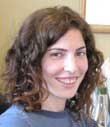 Natasha Fain, Staff Attorney Center for Justice and Accountability
Natasha Fain, Staff Attorney Center for Justice and Accountability
“Litigating Claims under the Alien Tort Statute”
Natasha Fain has been a staff attorney with CJA for three years, litigating Alien Tort Statute cases against perpetrators of human rights abuses from Somalia, Peru, and Haiti living in the United States, as well as investigating other perpetrators in the U.S. She joined CJA after working as a litigation associate with Morrison & Foerster LLP for four years, where she practiced complex civil litigation and worked pro bono on civil rights and human rights cases and publications with the ACLU, Stop Prisoner Rape, the California Habeas Project, and the Lawyers’ Committee for Civil Rights. She currently serves as chair of the Social Justice Committee of Congregation Emanu-El. She graduated with honors from Stanford University in 1998, receiving her B.A. in International Relations. She received her J.D. from the University of California–Berkeley School of Law in 2003.
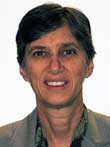 Beth Stephens, Rutgers School of Law
Beth Stephens, Rutgers School of Law
“Foreign Sovereign Immunity”
Professor Beth Stephens has published a variety of articles on the relationship between international and domestic law, focusing on the enforcement of international human rights norms through domestic courts. She co-authored a book analyzing U.S. enforcement of human rights norms, International Human Rights Litigation in U.S. Courts (Martinus Nijhoff Publishers, 2d ed. 2008).
From 1990 to 1995, she was in charge of the international human rights docket at the Center for Constitutional Rights in New York, where she litigated a series of cases addressing human rights violations in countries around the world, including Bosnia, Guatemala, Haiti, East Timor, and Ethiopia. In 1995, Professor Stephens received the Trial Lawyers of the Year Award from Trial Lawyers for Public Justice in recognition of her work litigating international human rights claims. She was a finalist for the same award in 2001 and 2010. As a cooperating attorney with the Center for Constitutional Rights and a member of the board of directors of the Center for Justice and Accountability, Stephens continues to litigate human rights cases, including cases filed against U.S.-based corporations alleging responsibility for human rights violations committed in the course of their activities abroad. She was co-counsel for the plaintiffs in Samantar v. Yousuf, a human rights case decided by the Supreme Court in May 2010, in which the court ruled 9–0 for her clients.
Professor Stephens graduated magna cum laude from Harvard University, received her J.D. degree from the law school of the University of California at Berkeley, and clerked for Chief Justice Rose Bird of the California Supreme Court.
Spring 2011 Workshop: Citizenship and Immigration
This seminar, led by Santa Clara Law Professor Pratheepan Gulasekaram, explored selected topics in citizenship and immigration law. Discussions and readings covered the way nations distribute citizenship, what rights or privileges should be conditioned on citizenship, undocumented migration, and proposals for immigration reform, including guest worker programs.
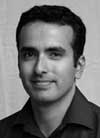 Karthick Ramakrishnan (Associate Professor of Political Science, U.C. Riverside)
Karthick Ramakrishnan (Associate Professor of Political Science, U.C. Riverside)
Going Local: The New Politics of Immigration in the United States
Karthick Ramakrishnan is an associate professor of political science at the University of California, Riverside. His research interests include political participation, civic voluntarism, and the politics of race, ethnicity, and immigration in the United States. He is a principal investigator on the first large-scale national survey of Asian American politics (2008), and is working on a project on civic engagement in new growth regions funded by the James Irvine Foundation. He has authored several articles on immigrant adaptation, local governance, and civic engagement. A forthcoming book from the Russell Sage Foundation is entitled Civic Hopes and Political Realities: Immigrants, Community Organizations, and Political Engagement. Other books include Transforming Politics, Transforming America (University of Virginia Press, 2006) and Democracy in Immigrant America (Stanford University Press, 2005).
 Hiroshi Motomura (UCLA School of Law)
Hiroshi Motomura (UCLA School of Law)
Are Unauthorized Migrants “Americans in Waiting?”
Hiroshi Motomura is the Susan Westerberg Prager Professor of Law at UCLA, a co-author of two immigration-related casebooks, and the author of Americans in Waiting: The Lost Story of Immigration and Citizenship in the United States (Oxford University Press 2006) as well as many widely cited articles and essays. He is currently at work on a book tentatively entitled, Immigration Outside the Law. He earned his J.D. at U.C. Berkeley.
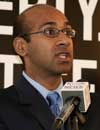 Ahilan Arulanantham (Director of Immigrants’ Rights and National Security, ACLU of Southern California)
Ahilan Arulanantham (Director of Immigrants’ Rights and National Security, ACLU of Southern California)
Emerging Issues in Immigration Detention
Ahilan Arulanantham is the Director of Immigrants’ Rights and National Security at the ACLU of Southern California. He has successfully litigated several cases involving the detention and deportation of non-citizens detained as national security threats, successfully represented a U.S. citizen wrongfully detained as an enemy combatant in Iraq, and won victories to alter the laws governing prolonged detention in the immigration context. Earlier, he was an assistant federal public defender in El Paso, Texas and was a fellow at the ACLU Immigrants’ Rights Project in New York. He clerked for Judge Stephen Reinhardt of the U.S. Court of Appeals for the Ninth Circuit and is a graduate of Yale Law School and Oxford University.
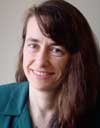 Juliet Stumpf (Lewis & Clark Law School)
Juliet Stumpf (Lewis & Clark Law School)
Governing Work Through Immigration Law
Juliet Stumpf is an associate professor at Lewis & Clark Law School. Earlier, she was on the Lawyering Program faculty at the New York University School of Law. Prior to her position at NYU, she clerked for Judge Richard A. Paez on the Ninth Circuit. In practice, she served as a senior trial attorney in the Civil Rights Division of the Justice Department where she litigated employment discrimination claims and advocated for civil rights protections on behalf of immigrants and U.S. citizens of color. She also practiced with the law firm of Morrison and Foerster, where she served as the firm’s representative to the Washington Lawyers’ Committee for Civil Rights and Urban Affairs and the Washington Lawyers Committee for Human Rights (now Human Rights First). She earned her J.D. from Georgetown University Law Center in 1995. Her research focuses on the intersection between immigration law and other substantive areas of law including criminal law, constitutional law, national security law, civil rights, and employment law.
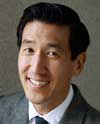 Stephen Lee (UCI Law School)
Stephen Lee (UCI Law School)
Regulatory Challenges of Unauthorized Migration
Professor Lee works on the intersection of administrative law and immigration law. His research examines the growing phenomenon of private decision-making within our immigration regime, particularly the role of private actors, notably employers, who play an important role in immigration policy. He earned his J.D. at U.C. Berkeley, and an M.A. in Asian American Studies at U.C.L.A.
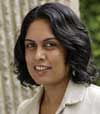 Jayashri Srikantiah (Stanford Law School)
Jayashri Srikantiah (Stanford Law School)
Stipulated Removals and Immigration Enforcement
Jayashri Srikantiah is an associate professor of law at Stanford and is the founder and director of Stanford’s Immigrants’ Rights Clinic, in which students represent individual immigrants and immigrants’ rights organizations and also engage in impact litigation, community outreach, public education, and policy advocacy. Her research explores the role of administrative discretion in immigration decision making in various areas, including human trafficking and immigration detention. Before joining the Stanford Law School faculty in 2004, she was the associate legal director of the ACLU of Northern California and a staff attorney at the ACLU’s Immigrants’ Rights Project. She has also worked as an associate at the law firm of Howard Rice Nemerovski Canady Falk & Rabkin, and was a law clerk to Judge David R. Thompson of the U.S. Court of Appeals for the Ninth Circuit.
